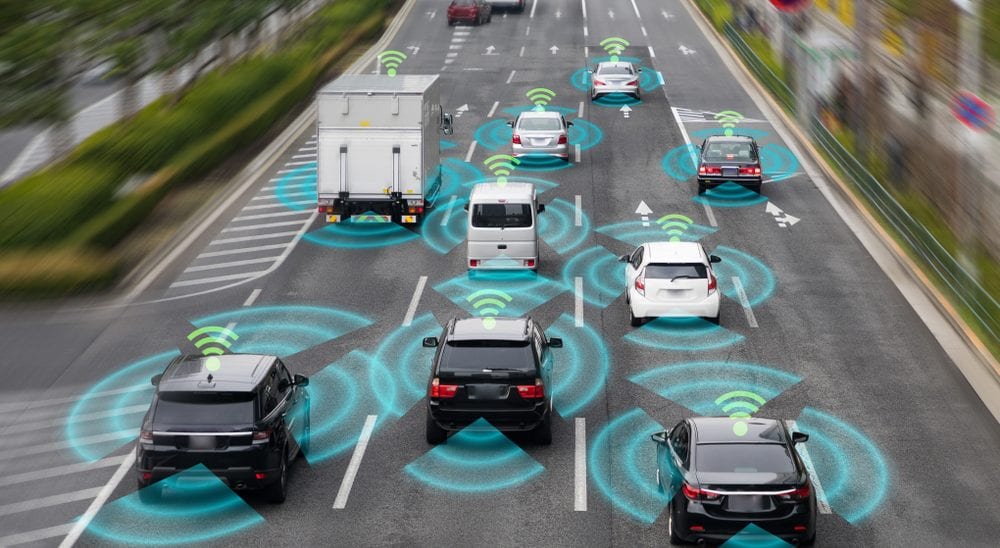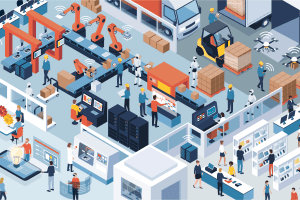How Is Smart Technology Set to Transform the Automotive Industry?

The automotive industry is laden with technological advancement — and always has been.
Whether it be for safety, entertainment, comfort, or innovation, you can be confident that manufacturers are working tirelessly to develop the latest bit of tech every single day.
In recent years, the focus for automotive giants around the world has been automation. Manufacturing innovation has given us so much in the past — what the future holds is almost unimaginable.
In a way, it is almost as if we are starting afresh, because the cars of the future will be so advanced we will barely be able to recognise them.
With this in mind, we thought we’d take a look at some of the smart technologies we can expect to see making an appearance before the end of the decade.
What we can expect
Vehicle to vehicle communication
In a perfect world, there would be no car crashes. Unfortunately, we cannot see into the future, and we cannot pre-empt what is around the next corner. But what if our cars could?
Vehicle-to-vehicle communication, or V2V systems as they are known, will “use dedicated short-range communications (DSRC), which are two-way wireless channels that enable V2V-equipped cars to communicate with each other at roughly 300 meters, and whose broadcast updates 10 times per second.”

Effectively, your car will have already spoken to a number of cars on the road ahead and calculated a plan for you, the driver, to avoid any potential collisions.
In most parts, it will revolutionise safety within cars thanks to the fact it will be able to detail when a car in front has run a red light, meaning it is unsafe for you to proceed. However, additional features will include the ability to warn drivers not to pass as there is a vehicle in front manoeuvring and there is abrupt deceleration ahead.
Reduced weight, reduced costs
For decades, it has been a desire of both motorists and manufacturers alike to reduce the weight of the vehicles we travel in.
In this department of innovation, there has already been rapid developments, but they were simply working to combat where weight gain had occurred in other areas. The 1967 Ford Fairlane 500 weighed only 19 pounds more than its 2017 Focus SE counterpart, while the 1967 Plymouth Fury III Wagon steps on the scales and comes in 15 pounds lighter than the 2017 Dodge Challenger.
Ford and BMW are just two manufacturers working to drastically decrease the weight of their automobiles, introducing more aluminium and carbon-fibre compounds. The Ford F-150, for example, has an aluminium body with a reduced curb weight of 698 pounds!
Not only does a lighter car save money when it comes to refuelling, it is also less damaging to the environment — meaning everyone’s a winner.
AR dashboard
Whether it be Back to the Future, one of the many Bond films, or any other film franchise which invoked a serious feeling of disbelief, you could almost guarantee that an augmented reality dashboard would work its way in somewhere. Now, the technology is set to make the leap from the big screen to the real world at last.
In effect, an AR dashboard would collate information from outside the vehicle, such as other moving objects and road conditions, and display them ahead of the driver on the windscreen. This removes the need for a driver to disturb their line of sight ahead.
The technology itself was used prominently when Pokémon GO was unleashed to the world back in 2016, but it is now used across many different platforms in many different industries.
German automotive giant BMW has been working to create a highly accurate camera and sensor system that will allow for the introduction of a full AR dashboard — displaying every bit of information that the driver could possibly need to know about the road ahead right in front of their eyes.
The smart technologies that we have already been gifted are nothing shy of amazing, but what the future holds for new cars is simply mind-blowing. We are unsure when these advancements are going to come into play, but we are confident that when they do, they will transform the industry.
